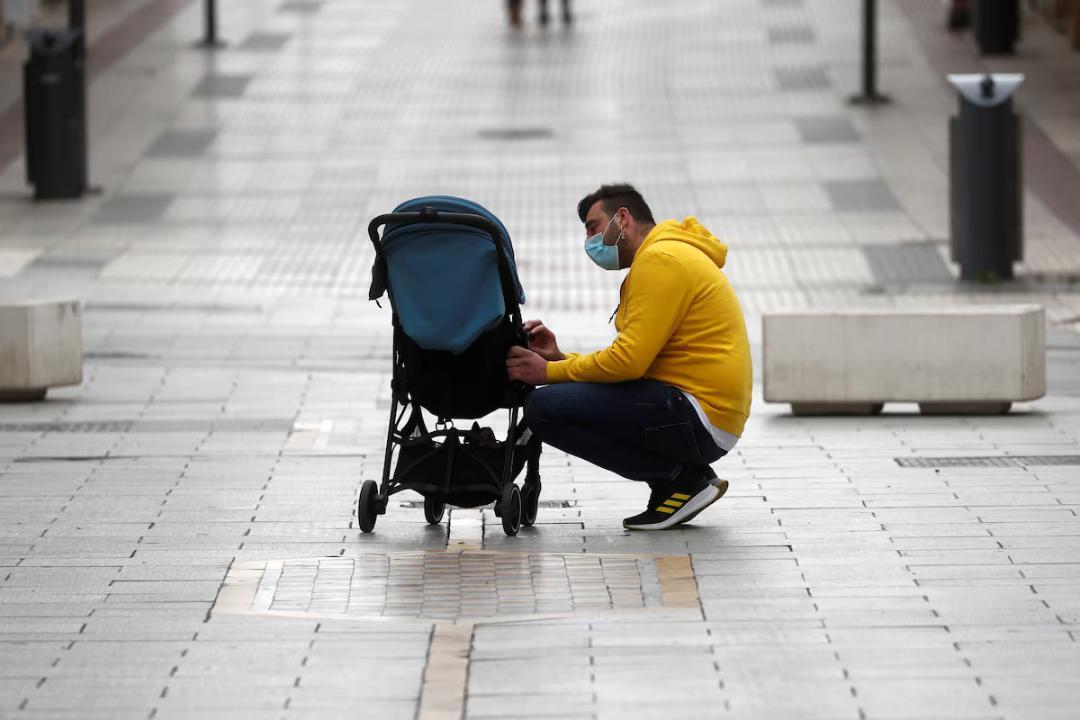
Spain to Offer 17 Weeks of Parental Leave to Both Mothers and Fathers
In a significant move towards gender equality, Spain has announced plans to extend its parental leave policy, providing 17 weeks of fully-paid leave to both mothers and fathers after the birth of a child. This update brings Spain in line with Finland, the only other EU country that offers equal, fully-paid birth leave to both parents. This new policy is a significant step forward for gender equality and parenting in Spain.
As of July 2025, parents in Spain will be entitled to 17 weeks of paid leave, divided equally between both mothers and fathers. This means that new parents will have the opportunity to spend quality time with their newborn, bond, and take care of their child’s needs without worrying about the financial implications. The extended leave will also provide a chance for fathers to take a more active role in childcare, promoting a more equal distribution of responsibilities within the family.
The decision to extend parental leave is part of Spain’s ongoing efforts to promote gender equality and support working parents. Spain has become a global leader in this area, with a range of policies aimed at helping parents balance work and family life. The country’s commitment to gender equality is evident in its approach to parental leave, which recognizes the importance of equal participation in childcare and the benefits this brings to both parents and children.
The announcement has been welcomed by many, including feminist groups and parenting organizations. “Spain is moving towards feminism…and there’d be no turning back,” said a minister, highlighting the significance of this move. The decision is seen as a major step forward in achieving greater gender equality and promoting a more equal distribution of responsibilities within the family.
Spain’s extended parental leave policy is also expected to have a positive impact on the country’s economy. Research has shown that when fathers take paternity leave, they are more likely to become involved in childcare and domestic work, leading to a more equal distribution of responsibilities within the family. This, in turn, can lead to increased productivity and job satisfaction, as well as a reduction in turnover rates and absenteeism.
The benefits of extended parental leave are not limited to the individual family or the economy. Studies have shown that children who have involved fathers are more likely to have better social and emotional development, as well as improved academic performance. This is because fathers are often able to provide a unique perspective and set of experiences that can enrich a child’s upbringing.
Spain’s decision to extend parental leave is also likely to have a positive impact on the country’s birth rate. In recent years, Spain has seen a decline in its birth rate, which has been attributed to a range of factors, including the high cost of living, lack of affordable childcare options, and the pressure to balance work and family life. By providing more support to new parents, Spain is hoping to encourage more people to start families and contribute to the country’s demographic development.
While Spain’s extended parental leave policy is a significant step forward, there are still challenges to be addressed. One of the main concerns is the potential impact on businesses, particularly small and medium-sized enterprises (SMEs). Many SMEs may struggle to adapt to the new policy, particularly if they do not have the resources or infrastructure to support extended parental leave.
To mitigate these concerns, the Spanish government has pledged to provide support to businesses, including financial assistance and training programs. The government has also emphasized the importance of flexibility and adaptability, encouraging businesses to find innovative solutions that work for both employees and employers.
In conclusion, Spain’s decision to offer 17 weeks of parental leave to both mothers and fathers is a significant step forward for gender equality and parenting in Spain. The policy is expected to promote a more equal distribution of responsibilities within the family, support working parents, and have a positive impact on the country’s economy and birth rate. While there are still challenges to be addressed, the Spanish government’s commitment to gender equality and support for working parents is a positive development that is likely to have a lasting impact.
Source:





